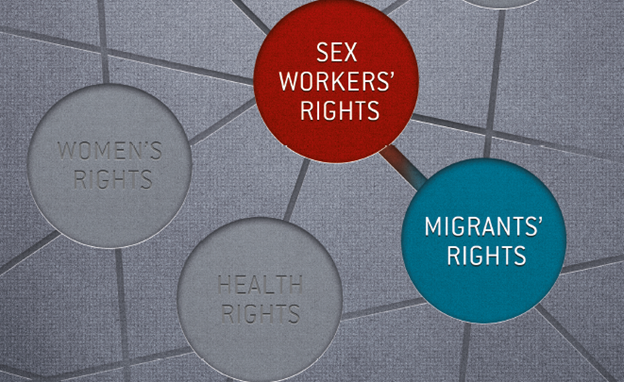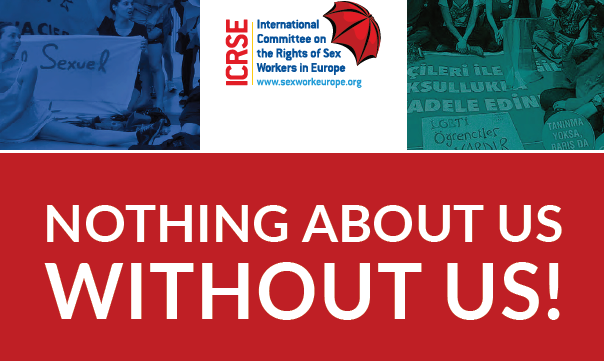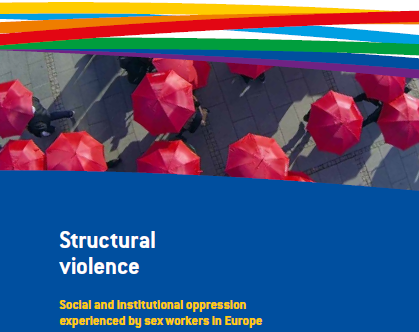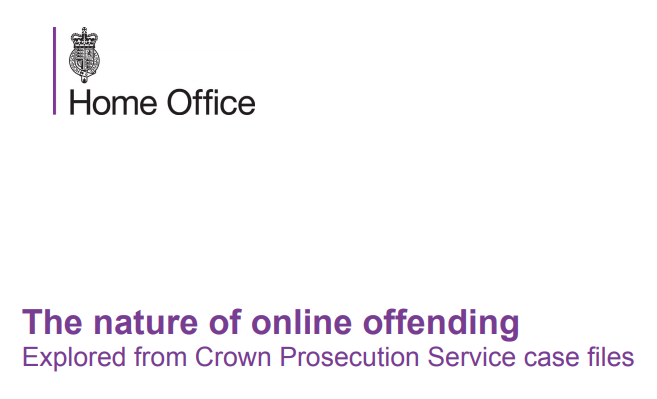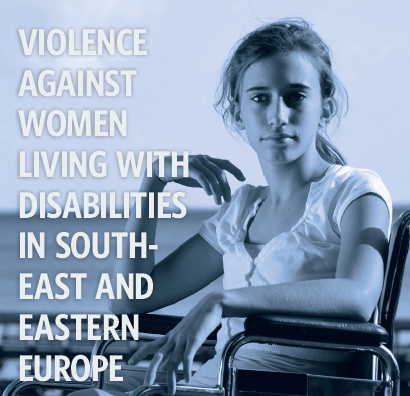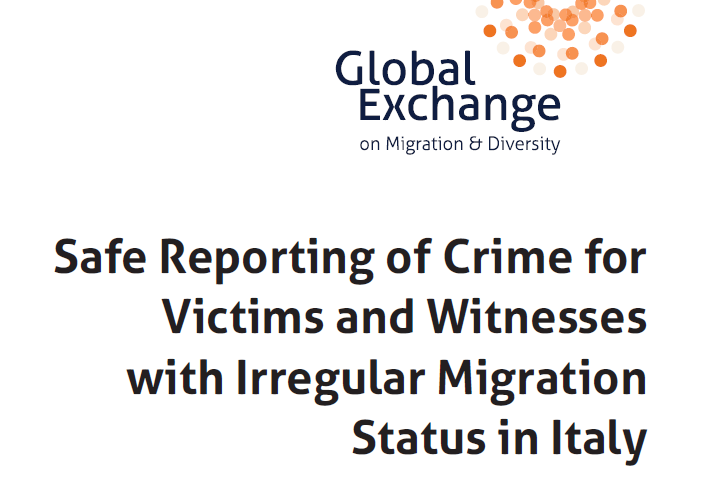For a quick search in the Knowledge database below, please use the search box. Also, note that using one or more of the dropdown filters will optimise your search.
Watch this video to find out more about our Knowledge Database and the publications we have collected here for you: video
Knowledge Database
-
Surveilled. Exploited. Deported: Rights Violations against Migrant Sex Workers in Europe and Central Asia
ICRSE | Published in 2016
Migrant sex workers in Europe and Central Asia often live and work in precarious and dangerous contexts. The reasons for this are the restrictive migration policies, repressive anti-trafficking measures and criminalisation of sex work, all of which contribute to violations of migrant sex workers’ rights. This briefing paper explores the diverse experiences and realities of migrant sex workers and the intersection of migrants’ rights and sex workers’ rights. It also calls upon migrants’ rights organisations to build alliance with sex workers and their organisations and actively support sex workers’ rights and the decriminalisation of sex work.
Keywords: intersectionality, migration, sex work, sexual violence, victimisation -
Nothing about us without us: 10 years of sex workers’ rights activism and advocacy in Europe
ICRSE | Published in 2016
The aim of this report it to reflect upon both the developments in the sex workers’ movement and changes in laws, policies and social attitudes affecting sex workers’ lives, rights and working conditions in Europe and Central Asia which took place in the decade following the Brussels conference.
-
Structural violence: Social and institutional oppression experienced by sex workers in Europe
This community report by the International Committee on the Rights of Sex Workers in Europe covers the theme of structural violence experienced by sex workers in Europe. The term ‘structural violence’ does not refer to direct and intentional use of power, whether physical or emotional, by particular subjects aiming to hurt other persons or violate their needs. Instead, it concerns situations in which some individuals or populations are harmed and their needs are impaired due to the oppressive and unjust social conditions in which they live. Sex workers’ realities in Europe (and globally) are also being moulded by brutal forces of structural violence.
Keywords: capacity building, sex work, sexual violence, violence -
“Hands off our clients!”: An Activism and Advocacy Guide for Challenging the ‘Swedish Model’ of Criminalising the Clients of Sex Workers in Europe
This resource kit has been designed to assist sex worker rights activists undertake advocacy to influence and challenge specific areas of policy or legislation of the Swedish Model, however it can also be modified to bring about other desired political change in sex work policy, legislation and funding. It is designed so that sex worker rights organisations and groups can go through each step, developing an advocacy plan from scratch or to redirect and sharpen existing activities.
Keywords: capacity building, sex work, sexual violence -
The nature of online offending in the UK
UK Home Office | Published in 2015
Evidence regarding online offenders is limited and there are key gaps in knowledge around offender demographics, backgrounds and criminal careers. A traditional way of building a picture of offenders is to examine sanctions related to crime types of interest. However, neither police recorded crime nor Police National Computer (PNC) entries readily identify cyber-enabled or other online crimes. The authors therefore decided to build up an understanding of online offenders using case files held by the Crown Prosecution Service (CPS). The small numbers of offences prosecuted under the Computer Misuse Act 1990 (CMA) can be easily identified from CPS case files. However, most cyber-enabled or other online offenders will be charged under other Acts (see McGuire and Dowling, 2013). Although CPS case files do not allow easy identification of offences committed online under other Acts, it is possible to examine case files for offences prosecuted under Acts that would be expected to contain offences committed online (along with other ‘offline’ cases).
Keywords: cybercrime, data protection, stalking -
Violence against Women Living with Disabilities in South-East and Eastern Europe
UNFPA | Published in 2020
Prepared by UNFPA’s Eastern Europe and Central Asia Regional Office, this evidence brief aims to provide information on the prevalence, causes and consequences of violence against women with disabilities, and on the access to services of women with disabilities who have been experiencing different forms of partner and non-partner gender-based violence. The brief is based on data from an OSCE-led Survey on the Well-being and Safety of Women in South-East Europe and Eastern Europe which provided valuable evidence, rationale and validation of worldwide findings on the greater exposure of women and girls with disabilities to gender-based violence. At the same time, it provides regionally specific guidelines for policies on how to achieve more effective response to and prevention of violence against women and girls living with disabilities in order to fulfil the principle of leaving no one behind.
Keywords: domestic violence, gender based violence, gender inequality, victimisation, violence -
Strengthening victims’ rights: from compensation to reparation
European Commission | Published in 2019
The report of Special Adviser Joëlle Milquet on “Strengthening victims’ rights: from compensation to reparation” tackles the main problems that victims of crime currently face when claiming compensation in European Union. The report takes a holistic view to compensation and is not limited to the pecuniary aspects of compensation or the compensation procedure stricto sensu. This report is founded on a human rights-based approach to criminal justice. It is based on the assumption that victims of crimes against the person have a right to justice and that criminal justice serves to redress – to ‘right’ – the wrong done to victims. If an offender, by committing a violent crime, calls victims’ rights into question or fails to compensate, victims can legitimately expect that their legal community will defend their rights to justice in criminal proceedings and that the State will have the duty to compensate them in place of the offender.
Keywords: cross-border crime, victim services, victims' rights -
Safe Reporting of Crime for Victims and Witnesses with Irregular Migration Status in Italy
Sara Bianca Taverriti | Published in 2019
This report aims to explain the existing legislation, policy and practices impacting on migrants’ ability to access the Criminal Justice System in Italy, as either victims or witnesses, without running the risk of self-incrimination or deportation. In particular, the report focuses on ‘firewall’ practices – that is, measures that encourage reporting of crime by migrants with irregular status by neutralising the risk and the fear of deportation and expulsion as a consequence of reporting crime. This report is intended to analyse the strengths and weaknesses of these measures, in order to assess their effectiveness in facilitating safe reporting of crime by irregular migrants. Finally, the report will consider the potential of policy reforms in the area of safe reporting, including by considering the potential for implementation in Italy of local measures known as ‘sanctuary policies’.
Keywords: justice, migration, victims' rights -
Questions & Answers – Victims’ Rights: New Strategy to empower victims
European Commission | Published in 2020
The EU Strategy on victims' rights is based on a two-strand approach: empowering victims of crime and working together for victims' rights. It presents five key priorities: (i) effective communication with victims and a safe environment for victims to report crime; (ii) improving support and protection to the most vulnerable victims; (iii) facilitating victims' access to compensation; (iv) strengthening cooperation and coordination among all relevant actors; and (v) strengthening the international dimension of victims' rights.
Keywords: victims' rights -
New laws but few cases: understanding the challenges to the investigation and prosecution of human trafficking cases
Amy Farrell, Colleen Owens, Jack McDevitt | Published in 2013
All fifty states and the federal government have passed laws to combat human trafficking, but we know little about their effectiveness. Using data from investigative case records and court files for 140 human trafficking cases in 12 U.S. counties and qualitative interviews with law enforcement, prosecutors, and victim service providers, we examined the characteristics of and challenges to investigation and prosecution of human trafficking cases under new state and federal laws. We found that few human trafficking cases are identified by local law enforcement, most cases forwarded to state prosecution are sex trafficking cases involving U.S. citizens, and state prosecutors overwhelmingly charge human trafficking offenders with other, lesser crimes.
Keywords: human trafficking, justice
